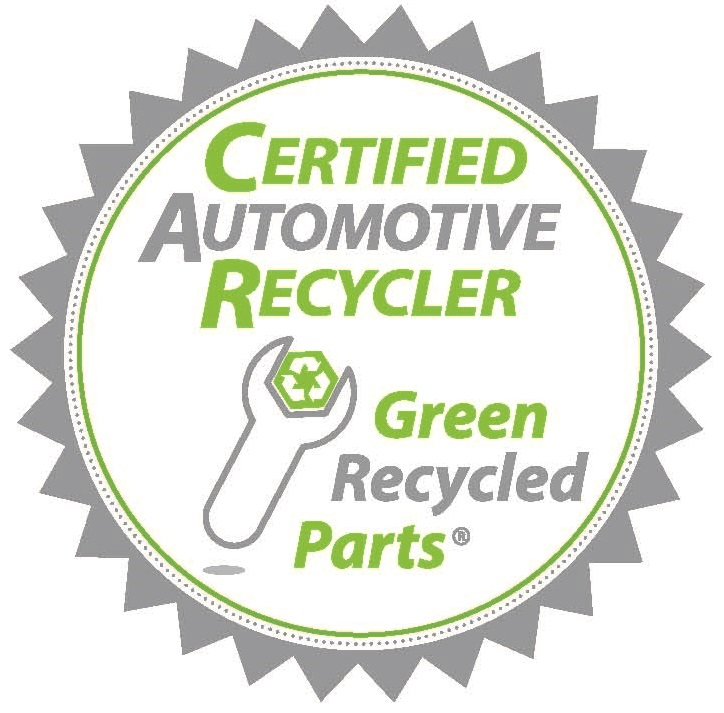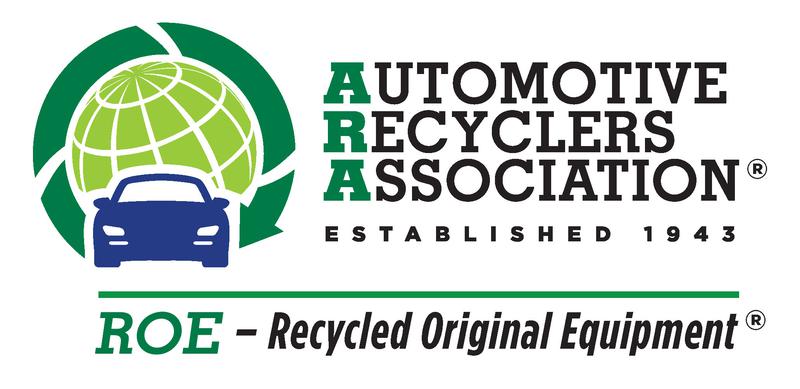Certified Auto Recyclers
Many professional automotive recyclers use a certification program to attain and maintain compliance with environmental, safety and transportation rules applicable to salvage facilities. The Automotive Recyclers Association (ARA) Certified Auto Recyclers (CAR) program sets a standard of excellence as the path to compliance.
Members of the Ohio Auto and Truck Recyclers Association utilize the ARA CAR program as a resource. Facilities that have achieved certification communicate to the marketplace that they have successfully undergone a comprehensive assessment and their processes and organization meet defined standards.
Regulatory Agency
The Ohio Environmental Protection Agency is a trusted leader and environmental steward using innovation, quality service and public involvement to ensure a safe and healthy environment for all Ohioans. Ohio EPA's goal is to protect the environment and public health by ensuring compliance with environmental laws and demonstrating leadership in environmental stewardship.
The Environmental Protection Agency (EPA) Region 5 serves Illinois, Indiana, Michigan, Minnesota, Ohio, Wisconsin and 35 Tribes from headquarters in Chicago, IL. https://www.epa.gov/aboutepa/epa-region-5
US EPA Region 5
Ralph Metcalfe Federal Building
77 West Jackson Blvd.
Chicago, IL 60604
312-353-2000
EPA in Ohio https://www.epa.gov/oh
Stormwater Regulation
Industrial Stormwater - General Permit - This general permit covers new and existing point source discharges of stormwater associated with industrial activity to surface waters of the State. The general permit requires the development and implementation of a Stormwater Pollution Prevention Plan (SWPPP). The purpose of implementing an SWPPP is to minimize or eliminate the potential for contamination of stormwater by industrial activities. A new permit with some changes was issued in 2022.
The new permit rules can be found at https://epa.ohio.gov/static/Portals/35/permits/OHR000007.pdf
Sampling is required. Samples must be tested for Total Suspended Solids (TSS) with a benchmark of 100 mg/L, Total Aluminum (Al) with a benchmark of 750 ug/L (ug/L mean micrograms per Liter) and Total Lead (Pb) with a benchmark dependent on hardness of receiving water, the average benchmark being 142 ug/L (hardness of 100-125 mg/L) from published data at https://www.hydroflow-usa.com/ohio-water-hardness.
Spill Reporting
Please call 911 for immediate assistance
Call the Spill Hotline at 800-282-9378 this line should only be used to report emergencies involving the release of any material that impacts public health or the environment.
National Response Center
If the hazardous condition involves the release of an EPA regulated material or an oil as defined by the EPA, the release may also need to be reported to the National Response Center at (800) 424-8802. Federal Reporting is required within 15 minutes of event occurrence or discovery.
The National Response Center (NRC) is a part of the federally established National Response System and staffed 24 hours a day by the U.S. Coast Guard. It is the designated federal point of contact for reporting all oil, chemical, radiological, biological and etiological discharges into the environment, anywhere in the United States and its territories.
Resources
National Small Business Environmental Assistance Program
The 1990 Clean Air Act Amendments required states to develop programs to help small businesses comply with air quality regulations through a small business environmental assistance providers' programs (SBEAP). Many state technical assistance programs have expanded their air quality focus to provide technical assistance in other environmental areas. Services provided by these organizations for small businesses include multi-media environmental compliance and pollution prevention (P2). P2 services help businesses reduce emissions at the source, often reducing regulatory burden and sometimes saving money.
To access these free services and to see which ones your state offers, locate your state program at https://nationalsbeap.org/states
Pollution Prevention Resource Exchange (P2Rx™) http://www.p2rx.org/
P2Rx is a national partnership of regional pollution prevention information centers funded in part through grants from EPA. We build networks, deliver P2 information, and measure P2 program results.
The Great Lakes Regional Pollution Prevention Roundtable (GLRPPR)
serves the Great Lakes region of the United States (Illinois, Indiana, Michigan, Minnesota, New York, Ohio, Pennsylvania, and Wisconsin) and Canada (Ontario). https://great-lakes-pollution-prevention.istc.illinois.edu/
GLRPPR projects include:
A series of guides developed for small business is available at the Portal to resources developed by the GLRPPR including the Pollution Prevention 101 and the Green Business Guide.
The following fact sheets are designed to assist automotive recyclers with operating their businesses and managing their wastes in compliance with the environmental laws in their state. Select from the list below.






